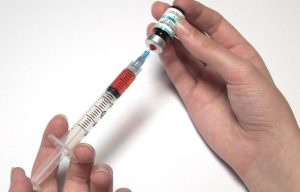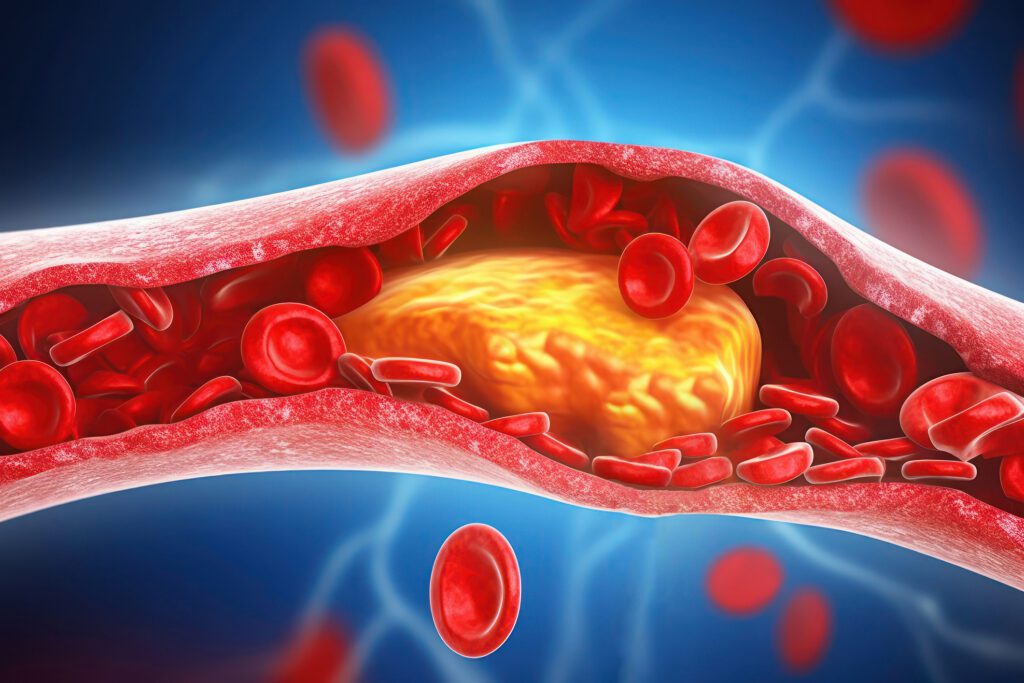 When it comes to managing some of our most common chronic conditions and quickly improving a persons’ overall sense of wellbeing, few things compare to B Vitamins and in particular, Vitamin B12. Safe, quick to administer, and fast-acting, B12 injections can make a profound difference in the lives of people with low energy, chronic fatigue, anxiety, hepatic (liver) disorders, infertility, arthritis/joint pain, and a host of other common conditions.
When it comes to managing some of our most common chronic conditions and quickly improving a persons’ overall sense of wellbeing, few things compare to B Vitamins and in particular, Vitamin B12. Safe, quick to administer, and fast-acting, B12 injections can make a profound difference in the lives of people with low energy, chronic fatigue, anxiety, hepatic (liver) disorders, infertility, arthritis/joint pain, and a host of other common conditions.
In Naturopathic Medicine, we are trained to treat the gut and the liver – it was always drilled into us that “You can’t ever go wrong by treating the liver”. In line with this, I’ve also learned that you can never go wrong by looking for and treating B vitamin deficiencies (because this impacts your liver!) and so let’s talk about Vitamin B12.
Why do we need vitamin B12?
Vitamin B12 is essential for healthy cells and maintaining a healthy brain and nervous system. Vitamin B12 aids helps build red blood cells, helps iron function properly and helps convert food to energy by metabolizing fats, proteins, and carbohydrates for energy production. Vitamin B12 also works with folate (vitamin B9) to produce one amino acid Methionine (a crucial building block of proteins necessary for a state of a healthy body) and another amino acid SAMe which controls mood and supports immune function. An intramuscular injection of B12 will enhance neutrophil response (the most prevalent of white blood cells), thus enhancing the immune system against infections. Overall, Vitamin B12 is critical in the methylation pathways of the human body that impact DNA and RNA synthesis, building immune cells and for energy production. I like to call Vitamin B12 – the happy Vitamin because it is a co-factor in the synthesis and balancing of hormones and neurotransmitters such as:
- Melatonin (the sleep hormone triggered by darkness and suppressed by light)
- Estrogen processing
- Brain Neurotransmitters (catecholamines)
- Dopamine– “the happy neurotransmitter” involved in the reward system, behaviour, sex, movement, and motivation.
- Epinephrine– your “fight-or-flight” response to stress.
- Norepinephrine– for alertness & energy
- Serotonin– the “feel good” hormone that manages mood, appetite, sleep, memory and learning.
Consequently, B12 deficiency affects mood, emotions and sleeping and can lead to psychiatric disorders.
Could I be deficient in Vitamin B12?
It depends. Most people who eat meat, fish, eggs and dairy products get enough B12. However a 2016 study from the British Medical Journal found that found one in 12 women aged between 19 and 39 were B12 deficient, despite consuming at least the daily recommended minimum intake. The recommended daily intake in Canada is RDA is 2.4mcg/day to 2.8mcg/day.
About 11% of vegans do have B12 deficiency. And even those who follow a more relaxed vegetarian diet are also at risk of developing B12 deficiencies. As we age, there are many reasons for low B12 levels, including increased stress, poor digestion and taking certain medications. As such, 1 in 20 over the age of 65 and 1 in 10 over the age of 75, also have low Vitamin B12 levels.
With the popularity of 23andme gene tests widely available to the public now, (among other genetic tests), an MTHFR polymorphism (quite common) is another potential cause for Vitamin B12 deficiency. Among individuals with B12 deficiency, the frequency of the TT MTHFR genotype was particularly high.
What are the symptoms of B12 deficiency?
- Anemia, fatigue
- Poor memory, memory loss, confusion, delirium and paranoia
- Shortness of Breath (also may indicate low iron)
- Feeling unstable, dizzy, or off-balance
- Swollen tongue, reduced taste buds
- Hyper-pigmentation of the skin, yellowing of the skin
- Neurological disorders (numbness and tingling in the hands and feet, migraines, neuritis, sciatica, etc.)
- Mental health symptoms (anxiety, depression)
- Gastrointestinal symptoms (constipation, diarrhea, dyspepsia)
- Musculoskeletal (back pain, bursitis, muscle cramps, osteoporosis).
To test or not to test?
Vitamin B12 testing is a bit controversial among practicing doctors and scientists. The widely used standard blood test for Vitamin B12 only measures the total amount of vitamin B12 in your blood – this is a combination of “active” as well as the “inactive” forms. If a significant amount of the vitamin B12 in your blood is inactive, a blood test may show that you have normal Vitamin B12 levels, even though your body cannot use much of it.Sometimes it is helpful to just look at the size of your red blood cells or the microcytic volume to see whether they are larger than normal.
The gold standard for Vitamin B12 testing is known as MMA – Methylmalonic acid. However, it is often expensive and cost-prohibitive. This is considered an organic acid test that requires B12 to be synthesized and will tell you how much Vitamin B12 is actually synthesized in the tissue.We can order this test individually and it is included in some of our Hormone panels and functional health assessments.Again this test is controversial and not all doctors agree on it’s use. So often in practice, we may simply use a patients history and symptoms alongside a basic CBC (complete blood Count) and a short therapeutic trial of Vitamin B12 injections.
Why are injections better? Why not just a daily pill?
B12 injections (intramuscular) offer the advantage of 100% absorption and immediate availability to the body. Injections that go directly into the blood stream bypass digestion (stomach acidity, liver conjugation, kidney excretion) and also can help people with malabsorption issues like those who have intestinal disorders (Crohn’s and Ulcerative Colitis) or have undergone intestinal surgeries. Also, absorption of B12 sublingual drops, chews or capsules is significantly reduced in time as one takes them so the dose must go up continuously in order to achieve the same results.
A B12 deficiency can result from a lack of intrinsic factor, a substance that is secreted in the stomach and needed to absorb B12. One cause is low hydrochloric acid (HCL) in the stomach. This can be aggravated by chronic use of prescription and non-prescription acid blockers. Low HCL is also common in elderly populations. The presence of a bacterium (Helicobacter pylori) associated with stomach ulcers has also been associated with low B12 levels.
Why would you use it? What are the benefits?
There are several reasons WHY.
- The injection contains 400+ times more vitamin B12 than the recommended daily dosage.
- When injected intramuscularly (in the posterior deltoid of the shoulder or in the gluteus of buttocks), vitamin B12 is easily and quickly absorbed by the body to be utilized in the formation of red blood cells, and maintenance of a healthy nervous and cardiovascular system.
- The 3 major health benefits of vitamin B12 injections are an increase in energy, improved sleep patterns, and a feeling of alertness.
- Deficiencies can cause mood swings, impaired brain function, tingling, and numbness. Anemia can also result from a deficiency in vitamin B12.
- Prevents irreversible neurological impairment – peripheral and central nervous system deterioration can occur due to a vitamin B12 deficiency. Its deficiency has been linked to demyelination of the nerves and the onset of Alzheimer’s disease and dementia.
- It reduces serum homocysteine levels (this is an amino acid, a breakdown product of protein metabolism) which when elevated has been linked to an increased risk of heart attacks and strokes. In fact, in January 2019, a Canadian published study from a combination of Canadian Universities including UBC concluded that Low Vitamin B12 and High homocysteine levels remain common in patients with stroke and TIA (Transient Ischaemic Attack) and because these conditions are easily treated and have serious consequences, all patients with stroke/TIA should have their serum B12 and homocysteine levels measured.
- It naturally declines with advancing age; the same happens with the production of HCL too making elderly population very vulnerable to B12 deficiency.
Is it safe?
There is also no risk of overdose of this vitamin; it has no upper limit in dosing.
In practice, some of my patients have reported that ingested vitamin B12 supplements didn’t help their symptoms but injectable vitamin B12 did help. Depending on the patient, we may start with one injection 2X/week for one week, then 1X/week for 4-6 weeks, then every 1-3 months for maintenance. An initial consultation and some basic blood work are often required.







